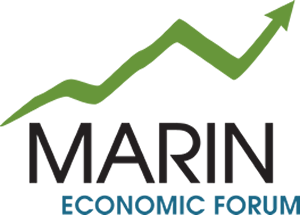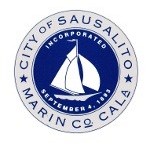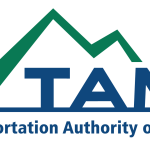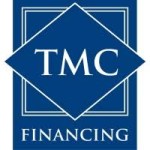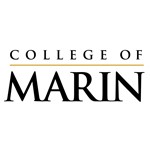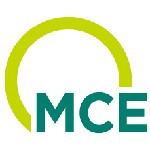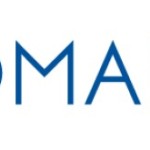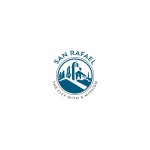Marin firm aims to nurture North Bay startup businesses
Marin Sonoma Impact Ventures, a new company based in Corte Madera, wants to make it easier for North Bay entrepreneurs to create startups.
Zachary Kushel, the founder, says that besides making money, the company has a social purpose: promoting economic development throughout the region.
“We are a for-profit enterprise but we are a social enterprise, which means we have a dual mandate,” said Kushel, who runs the business out of his home.
Kushel says Marin and Sonoma counties are already generating a fair number of startups and have the potential to produce many more, given the right stimulus.
“We have all the elements to have a very robust entrepreneurial ecosystem here,” Kushel said. “We’re just not putting the pieces together.
“We want to harness the full intellectual and financial capital that is so prevalent in Marin County to get behind those entrepreneurs who want to build the next great local enterprise,” he said. “Traditionally those entrepreneurs were on an island.”
Kushel is a former executive at SmithRx in San Francisco. Before that he was Glassdoor’s head of business development for about three years and worked for Cisco in global government relations for a little over three years.
Kushel has a master’s degree in public policy from Harvard University’s Kennedy School of Government. His undergraduate degree, a double major in economic and American studies, is from Cornell University.
To get entrepreneurs off their separate atolls and talking to each other, Kushel has created a “founder network” of 59 chief executives of early-stage Marin and Sonoma startups. Thirty of them agreed to mentor the next generation of entrepreneurs.https://013f38fa428e1cf5aff33d1784a6101d.safeframe.googlesyndication.com/safeframe/1-0-38/html/container.html
Kushel’s company is also facilitating communication between startups and potential funders.
“We have relationships with angel groups, with individual investors and with institutional venture capital funds,” Kushel said. “We’re making high-value introductions. Some have already led to meaningful cash infusions into Marin-Sonoma businesses.”
Kushel says his research indicates that Marin and Sonoma startups receive three to four times less venture funding than comparable Silicon Valley startups.
Founder network members include Megan Mokri, the chief executive of Byte Technology, a San Rafael food and beverage technology startup. Mokri said she and her husband started Byte seven years ago, and there was a notable absence of a startup community in Marin, despite its proximity to San Francisco.
“Having that community has been fantastic,” Mokri said. “There are other companies you can lean on that are at similar stages and going through similar challenges.”
Another network member, Pablo Muñoz-Ledo, chief executive of LookInto, a Novato software startup, said Marin entrepreneurs often assume they have to go to San Francisco or the South Bay for funding or mentorships.
“Being a part of this group has helped me understand that there are a lot of these resources right here,” Muñoz-Ledo said. “It was a discovery to learn about other startups in the area. The sense of community is important to me.”
Marin entrepreneurs can also take encouragement from research Kushel’s company has done to illustrate how successful local startups have been over the last decade.
Eleven North Bay startups — including Ultragenyx Pharmaceutical in Novato, Glassdoor in Mill Valley, Clairmail in San Rafael, mFoundry in Larkspur and Zep Solar in San Rafael — generated $100 million or more through a sale or public stock offering during that time.
Kushel said more startups were formed in Marin and Sonoma counties over the last decade than were formed in half of U.S. states.
In the past, however, Marin has been viewed primarily as an incubator for fledgling companies. The common wisdom was that the county lacked adequate office space to accommodate growth beyond a certain point.
“I would argue that in 2021 that is much less relevant than it has ever been,” Kushel said.
He said that growing companies these days are much more likely to want to keep a core group of about 50 employees at their headquarters while stationing larger contingents in lower cost areas of the U.S. and overseas.
Kushel said that following the COVID-19 pandemic, when more employees are being allowed to work outside the traditional office, is a perfect moment for Marin and Sonoma to capitalize on their attractive quality of life.
“There has been a massive exodus out of San Francisco among highly-trained knowledge economy workers to the suburbs,” Kushel said. “Marin and Sonoma are the key beneficiaries.”
The timing is also good for Marin economy as it tries to claw its way back from the pandemic.
In August, Kushel and Mike Blakeley, chief executive of the Marin Economic Forum, published a joint commentary in the North Bay Business Journal that said startups will play an outsized role in North Bay job creation over the coming years.
They cited a 2010 study by the Kauffman Foundation, which found that “during recessionary years, job creation at startups remains stable, while net job losses at existing firms are highly sensitive to the business cycle.”
“Historically more businesses are started coming out of a recession than at any other time,” Blakeley said. “And small companies can generate employment opportunities faster than big companies.”
Some employers in Marin have bemoaned the lack of available workers in Marin, particularly coming out of the COVID-19 lockdown. Kushel said that need not be a barrier to entrepreneurs.
“The type of jobs we’re hiring for here is entirely mismatched with the type of talent we have living in the community,” Kushel says. “We need more knowledge economy, high-quality, high-growth jobs because that is increasingly who has moved to this community.”
Be the first to receive updates and news from MEF by subscribing or liking us on our social media pages: Facebook, Twitter, and LinkedIn!
